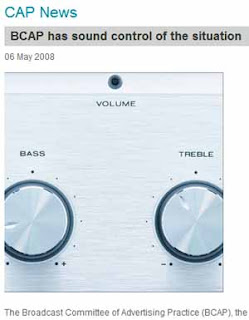Have you ever been misled by broadband providers' advertisements claiming to offer broadband speeds of "up to" X Mbps - then found that in fact your download speed is much less than that, or that your upload speed is just pitiful?
Misleading ads like this have been all too common in the UK; people sign up, tempted by the lure the ISPs hold out of faster speeds, not realising that with many ISPs you'll probably get less than the fastest advertised speed if you're further from the exchange, or that with other ISPs your speed could be significantly reduced depending on how many other users sharing your service are online. That's only in the small print, or not stated at all.
UK consumers and consumer bodies have been increasingly exercised about this kind of misleading ad, particularly for supposedly ultra high-speed services.
Take upload speeds, for instance. For domestic broadband, usually upload speeds are much slower than download speeds, e.g. for
BT Broadband the advertised download speed is 8MB but the
upload speed is a mere 256Kbps (and it's impossible to find
any info on upload speeds on the BT site itself). Originally advertisers were claiming high speeds all round, without making it clear that upload speeds weren't hugely better than on a dial up package. So much so that in mid 2005 the
UK Advertising Standards Authority issued
advice to marketers to "either do not use unqualified speed claims (unless the package is faster for both downloads and uploads) or be specific about the advantage, e.g. “Faster download” or “Upload speeds of up to XMB”," having upheld complaints on that front against
NTL,
BT and
AOL.
Then in September 2006, the ASA
upheld complaints about "up to 8 meg" speed ads on TV and in the national press by
Bulldog (though the ASA felt "up to" was fine in ads for 1 Mbps and 2 Mbps services, "where the user would not achieve the maximum speed because of factors such as the number of people on line but where the attainable speeds were
close enough to those advertised so as not to affect the customers' experience in any meaningful way" - the highlighted buzzwords were
used again earlier this year in a
Sky vs Virgin advertising spat).
They again upheld complaints about "up to" speed claims
against Wanadoo UK in October 2006, and
against Be in January 2007.
The ASA even issued
general advice to advertisers in March 2007 on that broadband ads should include a prominent statement along the lines of “top speeds vary significantly, in particular because of a user’s distance from the local exchange”.
The UK comms regulator
Ofcom have been aware of the issue for some time,
mentioning it e.g. their September 2007 consultation on
Future broadband - Policy approach to next generation access in the context of the importance of appropriate information being made available to consumers so they can make informed purchasing decisions about next generation network products and services.
In their
November 2007 consumer experience report and policy evaluation Ofcom noted falling consumer satisfaction with broadband in the UK , one area of complaint
being that advertised headline
broadband speeds do not reflect actual speeds delivered.
Their
December 2007 International Communications Market report also
noted that in the UK fully a
quarter of respondents felt that they received a service that was less than the advertised speed of 8Mbit/s or higher - the UK (along with Japan) had the biggest gaps between perceived advertised/headline and
actual speeds - and
In October 2007 the chair of the
Ofcom Consumer Panel Colette Bowe wrote an
open letter on broadband speeds to the Chief Executives of leading UK ISPs. And now finally, in
their response to
proposals in a letter by the
Ofcom Consumer Panel, Ofcom have said that they'll be talking to internet service providers early in the New Year about:
- ISPs providing consumer specific information prior to sale on the estimated maximum speed a customer’s access line can support (using BT Line Checker and/ or equivalent).
- ISPs providing consumers with data early within the contract period on the actual (rather than estimated) maximum speed being achieved.
- ISPs offering consumers the choice to move, penalty free, onto a different speed package based on the information provided
Other things mentioned in the letter, to help consumers:
- To help consumers choose the most appropriate ISP for their needs, Ofcom have also started a project to identify the most useful indicators to consumers for comparative Quality of Service information, and they'll consider what's the best way to provide this information to consumers.
- Ofcom are also going to publish, in summer 2008, a consumer guide with advice on how best to maximise the quality of a broadband connection within the home.
Ofcom further said:
"We are keen that any measures are implemented in the shortest time frame possible. At this stage, we have not ruled out the possibility of using formal powers if we consider it would be more effective in delivering our objectives."
In other words, "This has gone on long enough. Better sort this out fast, you ISPs, or we'll
make ya do it!" Which is good news for us consumers. I hope they make ISPs provide (pre and post contract) info on download speeds as well as upload speeds, and allow contracts to be cancelled if the promised speeds are not met - not just moved to a different package with the same provider. Let's wait and see...
Labels: advertising, broadband, consumer, internet











